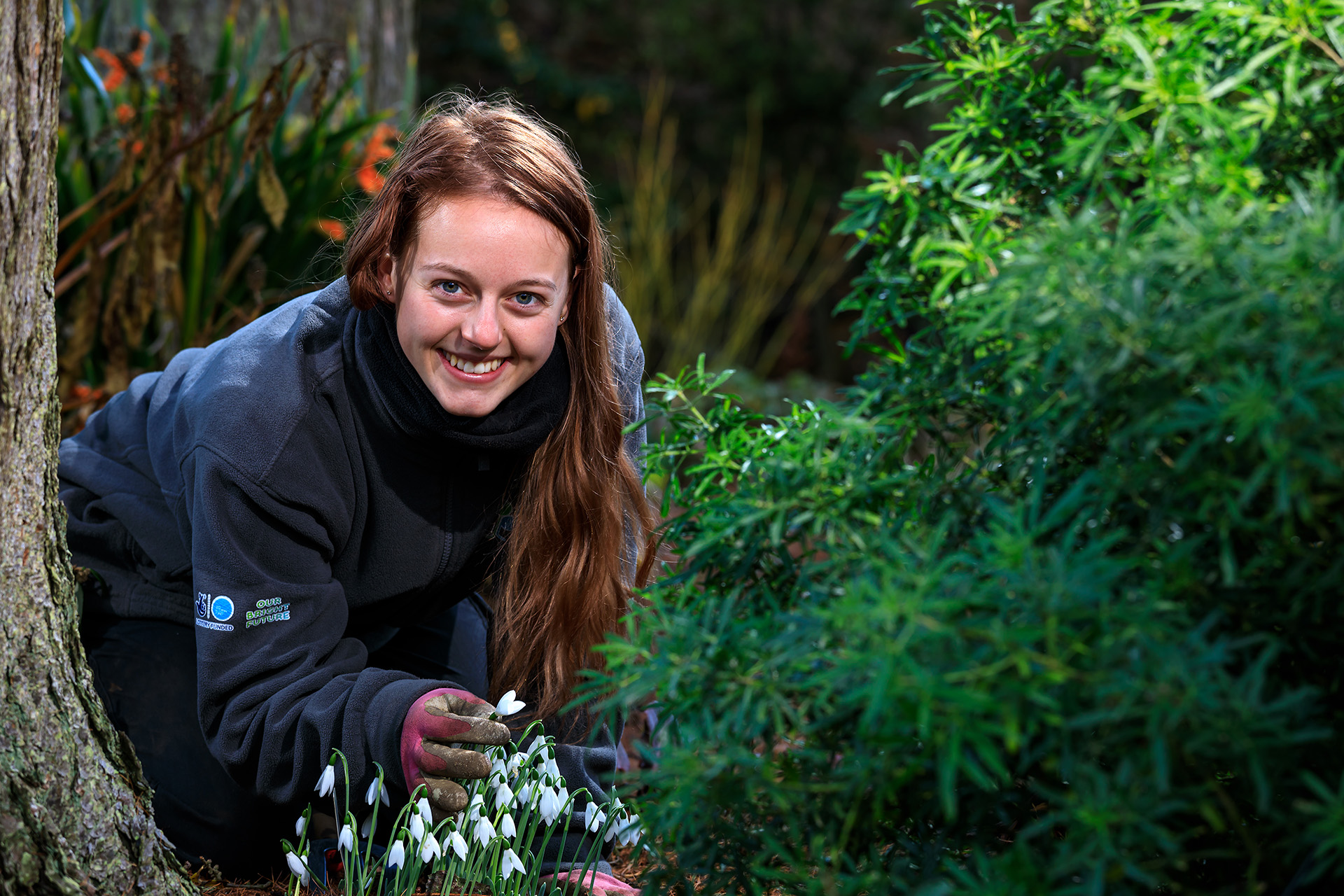

I’m currently working on a John Deere forwarder, so I go into the forest after the harvester has cut the trees down, take them out and stack them by the roadside, ready for the lorry drivers to take off site. Normally I can move 100 plus tons a day, but I always make sure I do it as neatly as I can.
Safety’s a big concern for us, so first thing I do each morning is check my machine. At the end of the day, I carry out any maintenance that’s needed, top up the fuel, oil and grease then walk around the vehicle to make sure everything's OK. I’m qualified to drive a harvester as well, but I really prefer using the forwarder.
There are some days when the weather’s a bit wild and that’s when we have to spend more time doing brashing. That’s using branches to provide more support on tracks and haulage routes, which keeps the machine from getting stuck. Damage to the ground is also reduced, which is better for the habitats and landscapes we’re working in.
My company’s given me a lot of support, especially during my apprenticeship, so it’s been easier to learn from any mistakes I’ve made.
The best bit about my job is that you're always doing different things. Sometimes you could be lifting timber, the next day you could be building bridges or clearing out drains to keep water courses clean.
I’m really into machines, so I love having a job that involves driving into the forest and managing woodland. It’s a pretty rewarding career.
Malcolm Whyte tells us how part-time study enabled him to get his dream job as a forestry operations manager with Atholl Estates in Perthshire.

A Myerscough College Sports Turf apprentice was become the first in the country to achieve a distinction level grade under the Sports Turf Operative Apprenticeship Standard.
Luke Weston, who has been undertaking an apprenticeship while working as part of Magdalen College School ground staff in Oxford, achieved the highest possible grade under the new system, introduced just a few years ago. He said:
“It was quite daunting to be the first learner to undergo the end point assessment process. My tutor Simon Dadge and my employer gave me tons of support to make sure I was ready for the day."
“To achieve a distinction is something I am extremely proud of. My advice to other apprentices is to be confident and to make sure you practice. I would also say to only agree to the end point assessment when you know you are ready, and your employer and tutor agree.”
The Apprenticeship Standards are written by the industry, for the industry. The Apprenticeship Standard includes an assessment plan produced by ‘trailblazers’, who are employer-led groups developing the standards, to make the apprentice truly industry ready at the end of their training.
The Apprenticeship Standards are designed to support and guide the apprentice through their work-based learning journey with constructive appraisals, the development of practical skills and knowledge, relevant competency-based qualifications, all complemented by off the job training designed to widen their industry experience.
The final stage of the apprenticeship is an End Point Assessment (EPA), which in Luke’s case was carried out by Lantra.
Taken from an article written by Dave Salmon
When Lucia came to the UK from Austria, little did she know that in just a few years her budding horticulture career would take her to the Royal Botanic Garden in Edinburgh while studying for a higher-level qualification. Lucia has achieved a great deal in a short time, and it all started with a love of gardening as a child.
Lucia said: “Gardening’s been a part of my life for as long as I can remember – there’s something about the colour and shape of flowers that really appeals to me. I remember helping my mum when I was tiny. She’s a keen hobby gardener and I would spend many happy hours pruning, digging and planting with her. It was great to be outdoors, but I didn’t think for one minute I’d do this for a career.”
After leaving school with no desire to go to university or get a desk job, Lucia wanted to explore career options that would satisfy her desire to work outdoors, so she came to the UK. Soon after arriving in Scotland, she managed to secure a volunteering job at Cambo Gardens near Kingsbarns in East Fife.
Lucia said: “Cambo was a fantastic platform for a horticulture career. Not only is it stunningly beautiful, but the support and training there is excellent. After volunteering, I did my NC in Horticulture, followed by a Modern Apprenticeship through ‘Our Bright Future,’ a lottery funded scheme to help young people gain valuable skills and experience. The Modern Apprenticeship combines practical skills work with theory, with course work managed through SRUC. It’s a great way to get hands-on, practical experience that’s relevant to your job. There’s nothing else like it really.”
Our Bright Future also provided funding towards other training courses, including brush cutting, health and safety, chainsaw work and felling. Lucia also had the chance to meet MPs, which she reflects upon with pride. She said: “I was honoured to be one of two people picked to represent the horticulture industry and voice our opinions to MPs in the Houses of Parliament as part of the Our Bright Future initiative.
We each had bring one issue to the table and mine was the lack of rural education in schools – the focus seems to be all about going to university and securing an office job, with little attention given to land based careers. We felt kids need to get away from screens and have more time outdoors. Our local MP seemed really interested to hear what we had to say.”
After completing her apprenticeship at Cambo, Lucia moved to Edinburgh where she is currently studying for an HNC in Horticulture with Plantmanship, delivered through SRUC and the Royal Botanic Garden Edinburgh. The course enables trainees to learn many of the practical skills required to work in a public or estate garden by shadowing specialist teams in rotations of five days.
Lucia explains. “The rotations are really useful because they give you a taster of so many different aspects of garden horticulture. For example, we worked alongside the art team at the Botanics, planting shrubs, transplanting trees and getting involved with general maintenance. The second rotation introduced us to the famous glasshouses, where we got paired with gardeners and got stuck into pruning and tending to the waterlilies. The third rotation was with the rock and wood teams working in the woodland and alpine garden, and the last will be the herbaceous team looking after vascular plants.”
So what does the future hold for such a promising young horticulturist?
“To be honest I’m keeping my options open. There are more opportunities in the UK than in Austria, as the garden culture is very different and horticulture isn’t such a big industry over there. Once I’ve finished my HNC, I’d like to go on and do an HND then possibly a degree, but for now I’m happy to keep on gaining experience and improving my skills.”
